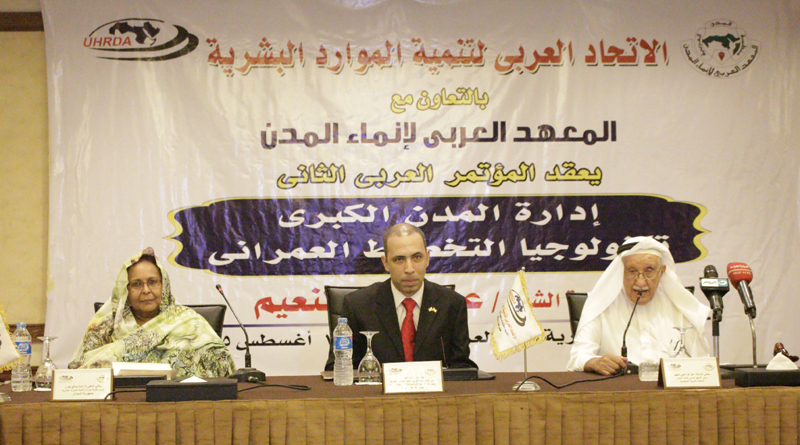by Amal Saeed
The Second Arab Conference began last Sunday in Cairo, organised by the Arab Federation for Human Resources Development in cooperation with the Arab Urban Development Institute, with the participation of 70 Arab countries.
Ayman El Gendy, director-general of the Union, said: “The conference aims to overcome the challenges facing the major countries in the Arab region, such as the lack of architectural and aesthetic character, the spread of slums, improper buildings and limited urban planning.”
He also marked that major countries need workers, money and, most importantly, knowledge and planning institutions, as the basic societal problem is the poor management and planning in the construction of countries.
Abdullah Al Noamy, the institute’s president, said that the conference represents a pause before the strong challenges of planning and urban growth and to provide municipal services and facility management to meet the aspirations and needs of the Arab citizen.
Al Noamy also praised the cooperation of government agencies in the Arab countries, especially Saudi Arabia deposit municipalities and countries to participate in this conference.
Amina Dhararo, minister of state for human development in Sudan, confirmed that the conference comes up to date with the development of large countries and technology of urban planning in the modern world. Therefore, she states, we need to study the current situation in Arab countries and the challenges facing them, particularly the ongoing rural migration, overpopulation, and the spread of substandard housing for low-income peoples.
The conference also witnessed the signing of a contract with the Greek company Air Sun to provide many Arab countries, including the new capital to be established in Egypt, with an “energy tree”, a new invention for the utilisation of renewable energy in the Arab countries.


